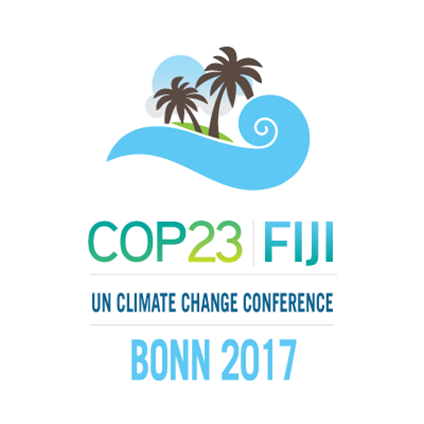COP 23 is underway in Bonn, Germany this week, under the Presidency of Fiji. It is the first time a Small Island Developing State has held the COP Presidency and this brings a unique opportunity for the voices of those on the front lines of the impacts of climate change to be heard at the UN climate negotiations. Fiji was also the first country in the world to ratify the historic Paris Agreement.
Climate Justice is an important element of COP23. A Climate Justice approach to the negotiations ensures decision making is participatory, transparent and accountable. This reflects the Pacific spirit and the Fijian tradition of Talanoa, a traditional approach to engage in an inclusive, participatory and transparent dialogue. This approach helps to bring the focus to the lived experience of people on the front lines of climate change.
Climate justice must be at the heart of the implementation of the Paris Agreement. This can be achieved if Parties pursue the 1.5°C goal in a way that ensures all countries’ climate action has equitable participation and is informed by human rights and gender equality.
One of the priorities of the Foundation at COP23 is the adoption of the Gender Action Plan. The gender dimensions of climate change have been receiving more attention in recent years, a positive development but the process still lags behind other UN processes. A robust comprehensive and ambitious Gender Action Plan must be agreed at COP23. This should include actions to achieve the goal of gender balance first agreed in Doha and to promote the participation of grassroots women.
Climate Justice Day at COP23 takes place on 16th November, the second ever such day to mark the importance of Climate Justice in the negotiations. It provides a space for the engagement of many different constituencies seeking the promotion of people-centred climate action.
The Mary Robinson Foundation – Climate Justice is a host partner in Development and Climate days from 11 to 12 November which will explore four key themes towards resilience for all. These themes are
- Resilience through empowerment and access.
- Valuing lived experience and local knowledge
- Transparency and downward accountability
- Shared resilience
At Development and Climate Days, the Foundation is supporting two events. The first entitled How can gender responsive climate action lead to resilient communities? It will unpack gender responsive climate action and its contribution to community resilience; identifying lessons learned and how these can be applied across contexts.
The second session support by the Foundation is entitled Listening to local voices: How can local actors inform national and global decisions so that they prioritize the needs of the most vulnerable. In round-table discussions or ‘learning circles’, participation will take part in a solution orientated dialogue to identify lessons learned and best practices in relation to listening to local voices.
The Mary Robinson Foundation is also supporting the screening of the movie Thank You For The Rain. It tells the story of Kisilu, a smallholder farmer and community leader from Kenya who used a camera to capture the life of his family, his village and the consequences of climate change.
Related links


